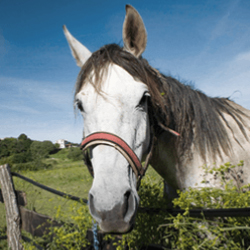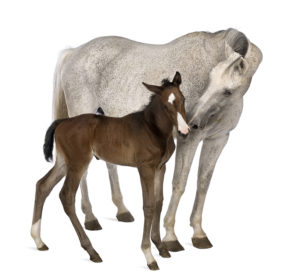

Recent outbreaks in both the unvaccinated and vaccinated horse population has bought Equine Influenza (EI) into the spotlight. Cases have now been confirmed in neighbouring Leicestershire, Lincolnshire and Derbyshire, as well as further confirmed cases in Cheshire, Suffolk and Essex. Despite being most prevalent in racehorses, the Animal Health Trust are now recommending that all owners are vigilant for any possible symptoms.

What is Equine Influenza?
Equine Influenza is a respiratory
disease which can affect the upper and lower airways in horses, donkeys and mules. Similarly to the human version, EI is a virus which comes in many strains. The virus attaches to the lining of the respiratory and causes subsequently damage. The damage leaves the respiratory tract susceptible to secondary bacterial infections.
What are the signs?
Clinical signs can vary from non-specific lethargy and loss of appetite to severe respiratory signs. The usual clinical signs include:
– Harsh, dry cough
 – Pyrexia, or an increase in temperature. Usually, over at least 38.5°C
– Pyrexia, or an increase in temperature. Usually, over at least 38.5°C
– Nasal discharge, may be watery or proceed to become thick with a yellow/green colouring
– Discharge and possible reddening of the eyes.
– Dull, depressed and loss of appetite
– Filling of the lower limbs
Diagnosis
In order to diagnose the condition, your vet may take a swab of the back of the throat which is then sent off for further testing. Alongside this, blood may be taken 2 weeks apart to look for a rise in the level of antibodies against the virus. The Animal Health Trust are currently offering free laboratory testing for suspected cases (visit, examination fees, postage and packing costs may apply).
Treatment
Treatment of the condition is largely based on supportive care. Isolation of any horses showing clinical signs is essential. Rest is vital in recovery and it is recommended that strenuous work should not be started until at least 2 weeks after the resolution of clinical signs. If you horse has a particularly high temperature, your vet may prescribe non-steroidal anti- inflammatory drugs such as phenylbutazone (bute) to reduce the inflammation and temperature of your horse. If your vet feels there is a secondary bacterial infection, antibiotics may be advised but this is not always the case.
Prevention
Prevention is better than cure in most diseases. Equine Influenza is endemic in the UK and is vaccinated against. To adhere to FEI rules, most horse have a initial vaccination course of three injections:
- Initial vaccination
- Second vaccination (21-92 days after the first)
- Third vaccination (150-215 days after the second)
In the light of the recent outbreaks, if your horse hasn’t been vaccinated in the last 6 months, an early booster is being recommended. This is because immunity wanes over the year. This is recommended for all horses but particularly those at high risk, such as those who compete, are on large yards with many animals moving onto and off the premise and those around unvaccinated animals. Vaccinated animals may still get EI, but they usually show a much milder form of the condition and get over it a lot quicker.
If you have any questions or concerns, please speak to one of our vets on at Our Southwell Branch






